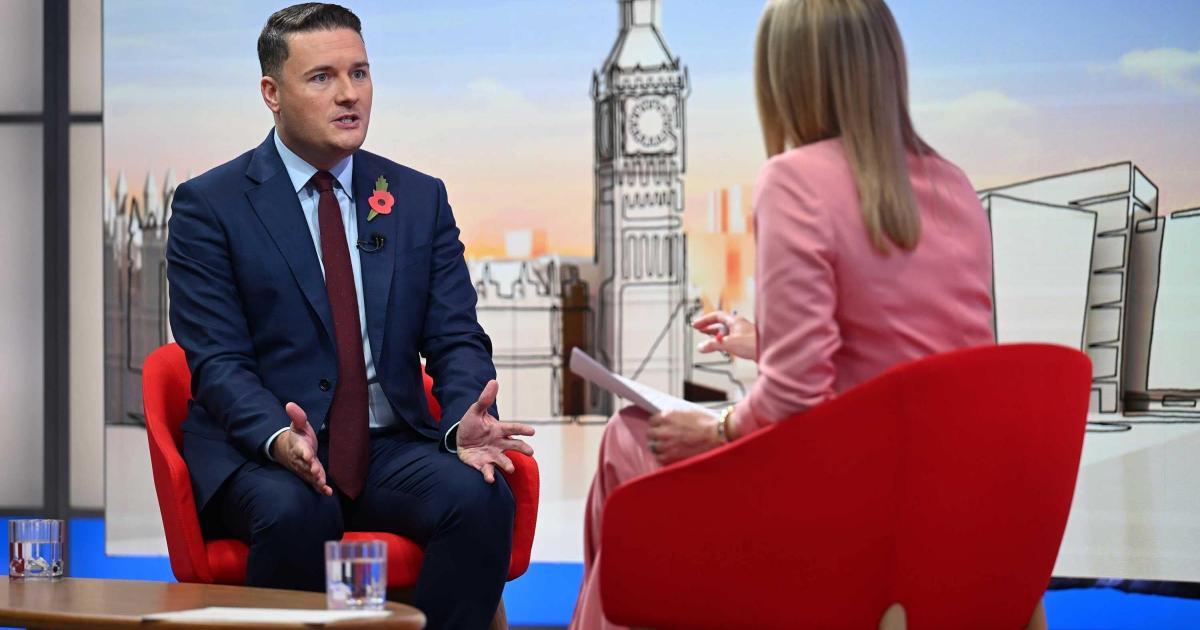The recovery in British living standards is coming to an end, a potential moment of peril for Prime Minister Keir Starmer, who has hailed the recent strength of wage growth as evidence that he’s making “working people” better off.
When Labour took office in July 2024, pay was rising at well over 5% a year — comfortably outstripping inflation of 2.2%.
However, the gap is fast narrowing, with economists predicting it will all but disappear this year as a fresh spike in consumer prices coincides with a cooling labour market.
According to figures from the Office for National Statistics, real wages grew just 1.5% year-on-year in the second quarter. Deutsche Bank AG expects a low point of 0.5% at the end of the year, while Banco Santander SA is forecasting an even sharper slowdown to 0.2%.
That would be the weakest growth since mid-2023, when households were still reeling from the cost-of-living crisis.
Figures on Wednesday are forecast to show that rising food bills helped lift inflation to 3.8% in July, the highest since January 2024, and the Bank of England expects 4% in September.
Meanwhile, private-sector pay growth is below 5% for the first time since early 2022, with a further slowdown expected.
“Households will be more dependent on household savings to buffer against the oncoming wave of price rises,” said Sanjay Raja, chief UK economist at Deutsche Bank.
The squeeze comes at a time when Britons are also bracing for further tax increases in the autumn budget as Chancellor of the Exchequer Rachel Reeves tries to fill an estimated £40 billion ($54.3 billion) hole in the public finances.
Labour swept to power on a pledge to lift living standards by the end of the Parliament, only to see its ratings collapse over issues ranging from tax rises and spending cuts to irregular immigrants arriving on small boats. It has been trailing behind Nigel Farage’s populist Reform UK party in national opinion polls for months.
Price pressures are likely to stay elevated even as the labor market slows as firms continue to be squeezed by decisions to raise payroll taxes and the minimum wage in April.
On Monday, traders pared back bets on another quarter-point rate cut this year, with swaps at one stage implying a less than 50% chance of such a move. A reduction was fully priced earlier this month.
An EY Item Club analysis shows that restricting pay awards provides only limited relief from surging employment costs, meaning many firms will still have to raise prices. For example, for workers earning £45,000 and £75,000 a year, employers offering a below-inflation rise of 3% still face an approximate 5% increase in payroll bills.
“Given April’s change in employers’ National Insurance Contributions, most companies will still have seen little drop-off in labour cost growth, despite offering smaller pay rises,” said Matt Swannell, chief economic adviser to the EY Item Club.
A separate survey conducted by the Chartered Management Institute showed that companies are more likely to pass on cost increases than cut wage growth. A quarter of private-sector firms have increased their prices, while only one in five have cut wage growth in response to April’s measures.
For Starmer, delivering significant improvements to living standards over the next four years will be difficult absent a step-change in productivity growth that has eluded successive governments since the global financial crisis. The risk is that consumers, who continue to save a bigger share of their income than before the pandemic, remain in cautious mode and hold back the wider economy.
“Stagnant real regular pay growth by year-end should keep household consumption on the back foot, allowing the Bank of England to cut rates in February and April once the inflation spike is safely in the rear-view mirror,” said Gabriella Willis, UK economist at Santander Corporate & Investment Banking.

